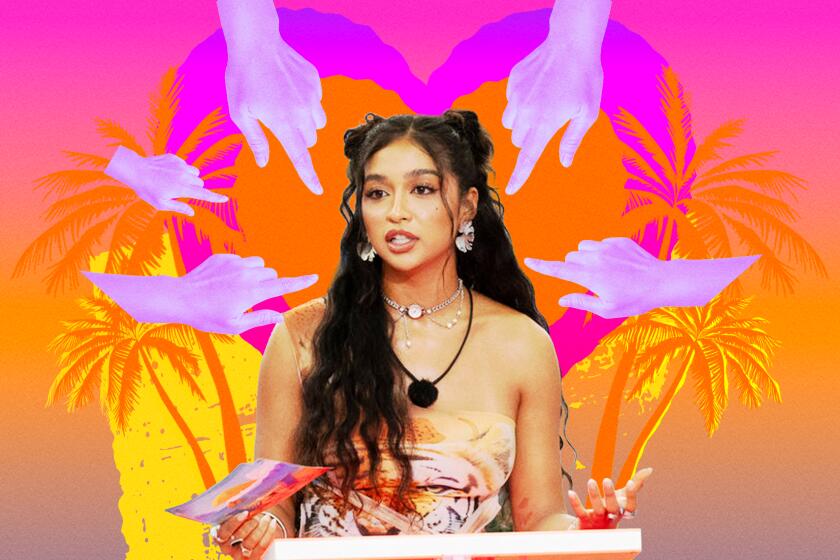The Impact of Racism in Reality Television: A Closer Look at Recent Controversies
In a recent episode of “Love Island USA,” the show’s narrator announced the departure of contestant Cierra Ortega, citing a “personal situation” as the reason for her exit. Ortega, a 25-year-old content creator from Arizona, had garnered attention as part of the popular Peacock reality dating series where singles live together in a luxurious Fijian villa, seeking romantic connections and the chance to win a grand prize of $100,000 along with potential fame and brand deals. However, Ortega’s departure was tied to resurfaced Instagram posts in which she used a derogatory term aimed at the Asian community, leading to significant backlash online.
Further reading: Olive Sea Travel Your Coastal Adventure Awaits
Cierra Ortega is not the only contestant to face consequences this season for past racist behavior; 27-year-old Yulissa Escobar was removed after videos surfaced of her using the N-word during a podcast discussion. This incident, like Ortega’s, ignited widespread outrage on social media, prompting many fans to demand accountability from the show’s producers. Escobar’s removal followed just two days into her participation in the current season, highlighting a growing trend within reality television to take swift action against racism.
The Broader Implications of Racism in Latino Culture
These incidents bring to light a troubling aspect of Latino culture regarding the casual use of racist language. For many within the Latino community, the normalization of slurs can stem from a lack of awareness about their harmful impacts, often dismissed as harmless banter. This is particularly disheartening given the increasing racial awareness spurred by social justice movements in recent years.
The swift disciplinary actions taken against Ortega and Escobar mark a significant change in how reality television addresses racism. In past seasons, contestants have faced various forms of reprimand for actions ranging from inappropriate behavior to drug use. However, the recent emphasis on racial accountability represents a notable shift, especially for a show like “Love Island USA,” which showcases a diverse cast.
A Call for Reflection and Growth
Following their respective removals, both Ortega and Escobar have issued public apologies. Escobar acknowledged her past ignorance and expressed a commitment to learning and growing from her experiences. Similarly, Ortega addressed her audience through social media, emphasizing the importance of understanding the pain associated with her words and acknowledging her responsibility for the harm caused.
Ortega’s parents also spoke out, asking for compassion from fans who were attacking their daughter online. They recognized the gravity of the situation while urging people to remember the importance of accountability without resorting to online harassment.
The Cultural Context of Racism
These occurrences highlight the urgent need for conversations about racism within Latino communities across the United States. While the actions of Ortega and Escobar may be seen as isolated incidents, they reflect a broader issue ingrained in various Latino cultures. The dynamics of race and identity are complex, and casual racism can often go unchecked, perpetuated by generations of misunderstanding.
Addressing these issues requires a concerted effort to foster dialogues about racism and its consequences. Many individuals within Latino families may find themselves grappling with the language and attitudes that perpetuate harm, making it essential to educate loved ones about the impact of their words. This process, though challenging, is crucial for cultural evolution and collective accountability.
Moving Forward: Compassion and Education
As society becomes increasingly aware of the implications of racism, it is vital for communities to unite against discriminatory behavior. The removal of Ortega and Escobar serves as a crucial reminder that harmful language has no place in our discourse, regardless of intent. While their actions were undoubtedly misguided, the fallout from their behavior has sparked necessary conversations about racism and accountability within Latino culture.
While it is important to hold individuals accountable for their actions, it is equally essential to foster an environment of understanding and compassion. Harassment and threats against those who make mistakes fail to promote growth and learning. Instead, we should encourage dialogue that allows individuals to reflect on their actions and strive for improvement.
Conclusion
In the wake of these controversies, it is clear that the reality television landscape is evolving. As shows like “Love Island USA” take steps to address racism and hold contestants accountable, it sets a precedent for future programs to follow suit. By promoting education and understanding within our communities, we can work together to combat racism and foster a more inclusive society. The journey towards growth and understanding may be difficult, but it is essential for the betterment of all marginalized communities.

